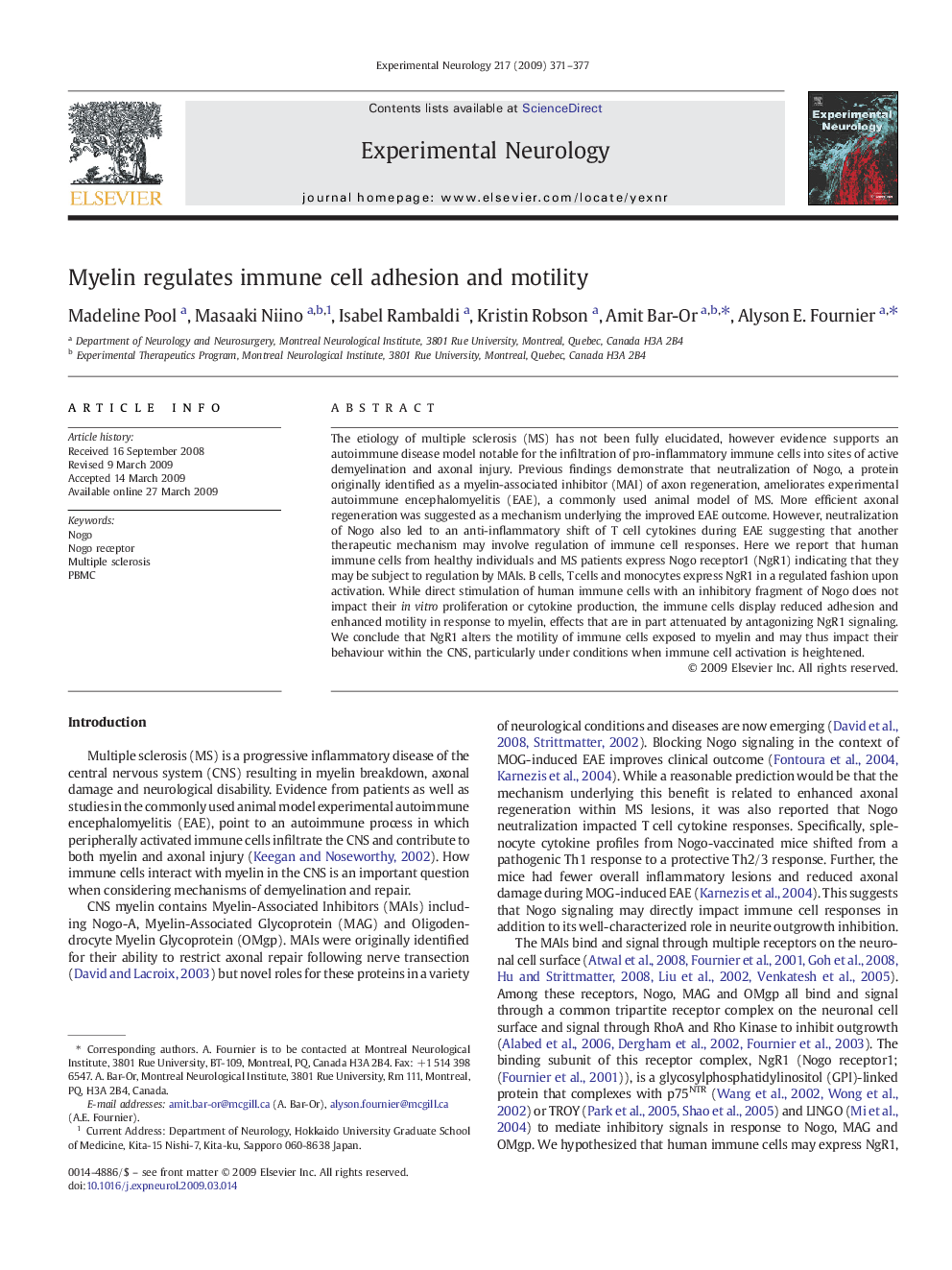| Article ID | Journal | Published Year | Pages | File Type |
|---|---|---|---|---|
| 3056339 | Experimental Neurology | 2009 | 7 Pages |
The etiology of multiple sclerosis (MS) has not been fully elucidated, however evidence supports an autoimmune disease model notable for the infiltration of pro-inflammatory immune cells into sites of active demyelination and axonal injury. Previous findings demonstrate that neutralization of Nogo, a protein originally identified as a myelin-associated inhibitor (MAI) of axon regeneration, ameliorates experimental autoimmune encephalomyelitis (EAE), a commonly used animal model of MS. More efficient axonal regeneration was suggested as a mechanism underlying the improved EAE outcome. However, neutralization of Nogo also led to an anti-inflammatory shift of T cell cytokines during EAE suggesting that another therapeutic mechanism may involve regulation of immune cell responses. Here we report that human immune cells from healthy individuals and MS patients express Nogo receptor1 (NgR1) indicating that they may be subject to regulation by MAIs. B cells, T cells and monocytes express NgR1 in a regulated fashion upon activation. While direct stimulation of human immune cells with an inhibitory fragment of Nogo does not impact their in vitro proliferation or cytokine production, the immune cells display reduced adhesion and enhanced motility in response to myelin, effects that are in part attenuated by antagonizing NgR1 signaling. We conclude that NgR1 alters the motility of immune cells exposed to myelin and may thus impact their behaviour within the CNS, particularly under conditions when immune cell activation is heightened.
